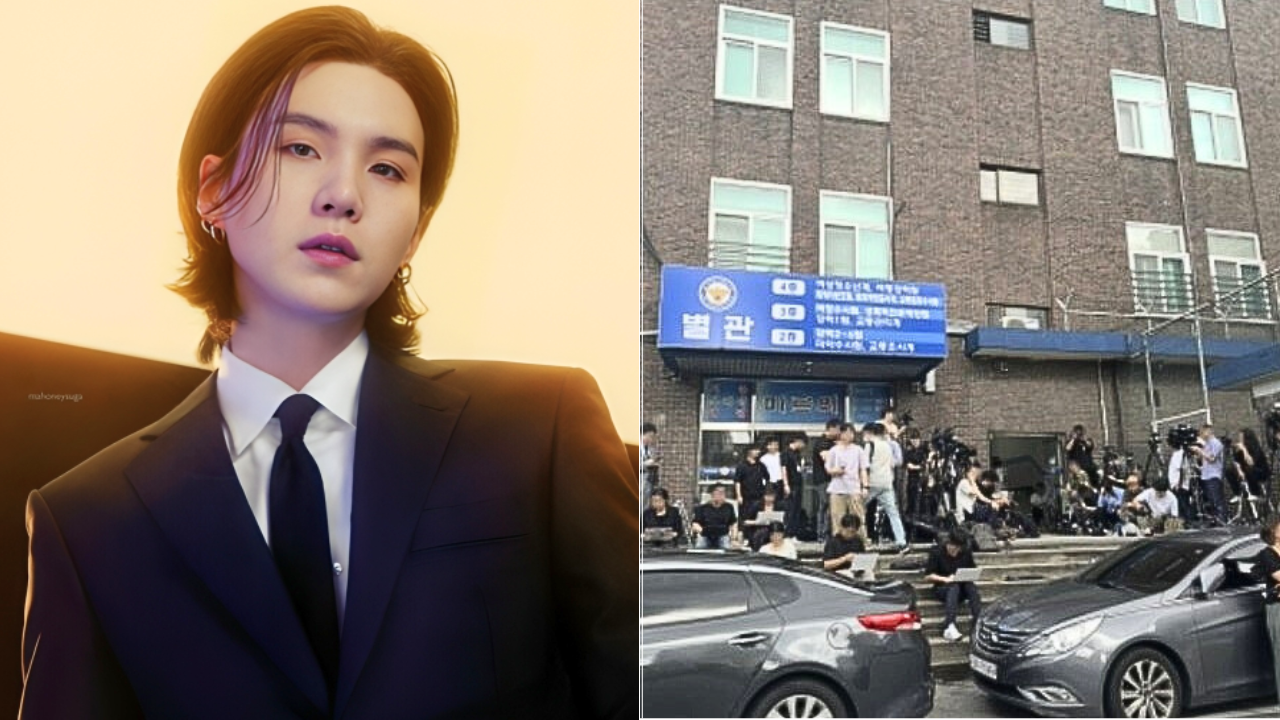Korean media’s relentless coverage risks damaging Suga’s global image.

On August 22nd, French weekly magazine Paris Match published a critical article titled “Misreporting and Pressure… What’s Happening to BTS’s Suga?” The piece scrutinized the Korean media’s intense coverage of BTS member Suga following his booking on charges of driving an electric scooter while intoxicated. The article accused the Korean press of engaging in an exaggerated and relentless pursuit to tarnish Suga’s reputation over the past few weeks.
Accusations of Media Misconduct
Paris Match criticized the Korean media for its relentless pursuit of the story, particularly noting Suga’s appearance at the Police Station. According to the article, some media outlets allegedly threatened Suga, suggesting that if he did not comply with photo opportunities during his police questioning, the media would make the situation even more challenging for him.
The publication argued that this behavior mirrored a broader pattern of media misconduct in South Korea, where journalists appear to prioritize scandal over sensitivity, even in the wake of tragedies like the one involving the late actor Lee Sun-kyun.

The French outlet highlighted the scene outside the Yongsan Police Station, where dozens of reporters gathered to capture footage of Suga’s arrival. Paris Match suggested that the Korean media seemed fixated on obtaining images of the global star bowing his head in shame, a stark reminder of the unforgiving nature of celebrity culture in South Korea.

False Reports and Reputation Damage
The Paris Match article also pointed out several incidents where the Korean media allegedly published false reports aimed at damaging Suga’s reputation. Among these were the “ARMY drinking challenge,” a mistaken CCTV report by JTBC, and erroneous claims that special vacation allowances for public service workers were suspended due to Suga’s actions.

While acknowledging that Suga admitted to driving the electric scooter irresponsibly, the magazine expressed confusion over why Korean reporters continued to pursue the story so relentlessly, especially when the wrongdoing had already been acknowledged.
The article also noted that the media’s decision to describe the vehicle as an “electric kickboard” and Suga’s admission of drinking “a glass of beer” only served to fuel the controversy further.

Calls for Suga’s Departure and Brand Severance
In addition to the immediate coverage of the incident, Paris Match noted that some Korean media outlets went as far as to call for Suga’s departure from BTS, questioned whether he would be allowed to return to television, and even suggested that advertising brands sever ties with him.
The magazine argued that such drastic measures were inconceivable, given BTS’s global influence and the integral role each member plays in the group. It stressed that BTS, being one of the most listened-to groups worldwide, would not easily be abandoned by their international fanbase, especially during a time when Suga needed their support the most.

A Broader Critique of K-Pop Media Culture
Paris Match also took the opportunity to discuss the broader phenomenon of how K-pop idols are treated when embroiled in scandals or facing military service obligations. The magazine drew comparisons to the public’s reaction to older idols who have faced similar controversies, noting that some fans tend to abandon their stars in such situations. The article observed that while Suga’s case has caused a significant stir within Korea, it remains relatively under the radar internationally.
The French publication closed by posing a rhetorical question:
“How could HYBE (BTS’s agency) possibly explain to the U.S., the birthplace of the star system and scandals, that they had to disband the world’s most popular group because of a story about an electric scooter?”
This pointed question underscored the absurdity of the situation in the eyes of foreign media, which views the Korean media’s treatment of Suga as not only excessive but also potentially damaging to the global perception of K-pop.

Paris Match’s critique of the Korean media’s treatment of Suga underscores the ongoing tensions between celebrities and the press in Korea. While the incident involving Suga may be minor, the reaction it has sparked reveals much about the broader challenges faced by K-pop idols in navigating both domestic and international scrutiny. As the global fanbase continues to rally behind Suga, the question remains whether the Korean media will reflect on its approach and adopt more measured and responsible reporting in the future.






